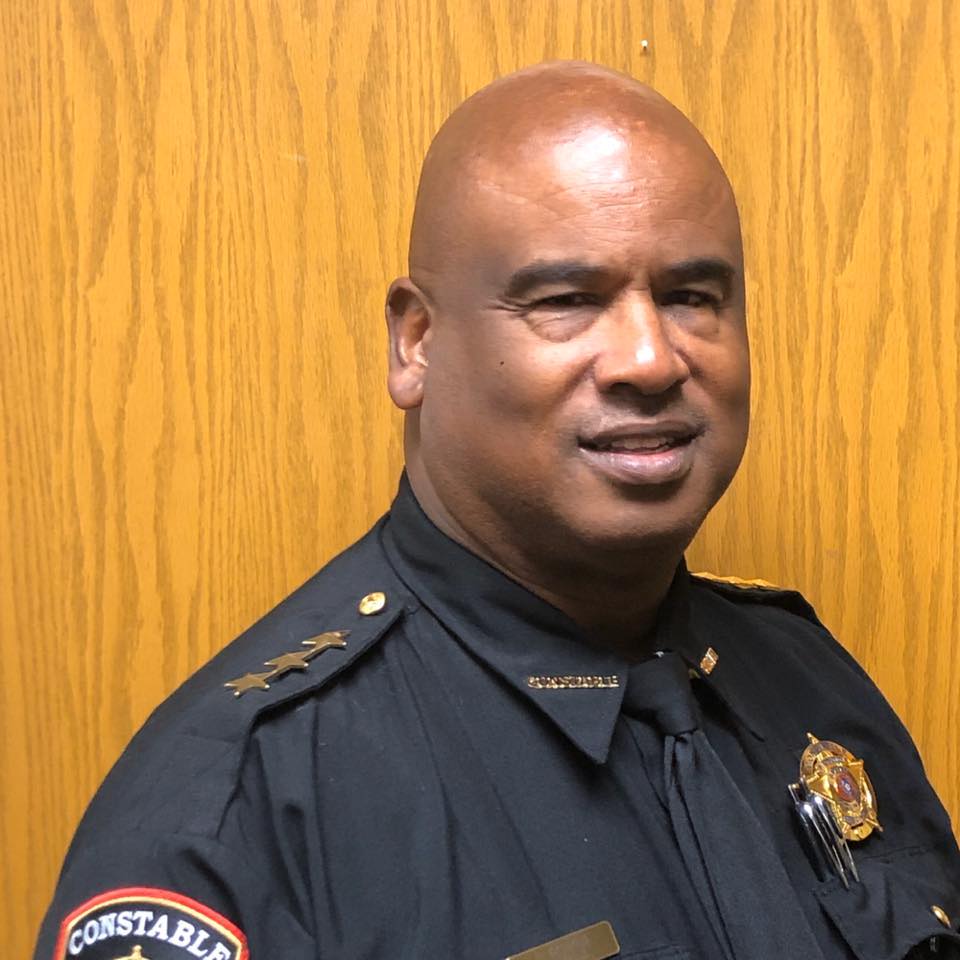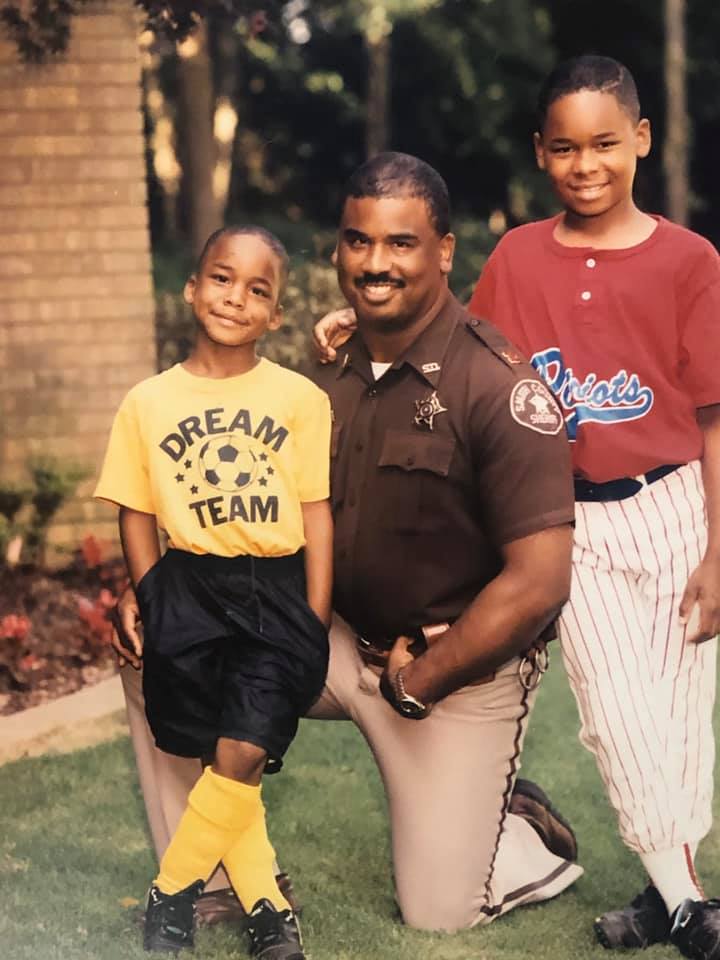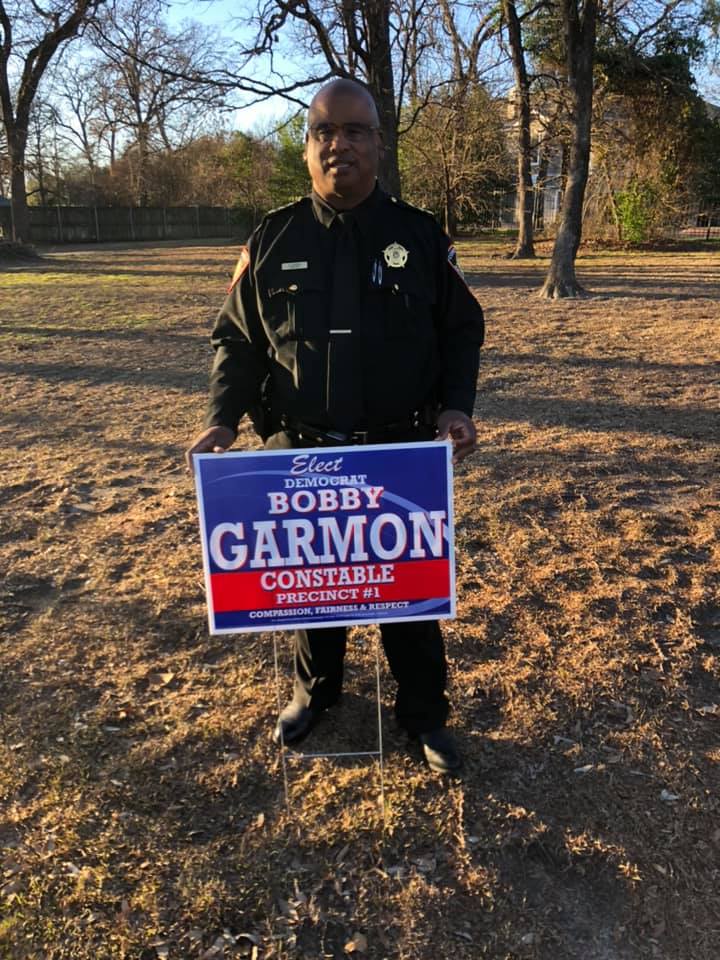After facing several challenges in court, the race for the Democratic representative for Precinct 1 constable has left voters with two candidates in the upcoming run-off election on July 14th, with early voting starting this past Monday until July 10th.
As no Republican candidates are running for the office, the run-off will determine the next Precinct 1 constable.
With the election approaching, we talked with these two candidates to understand their platforms and plans for their precinct, as well as what it means to be a Black man running for a law enforcement office as protests against racial injustice in policing are rising across the country — even here in Tyler.
Here, we speak with appointed Constable Bobby Garmon, who has worked in law enforcement in East Texas for 40 years, spending the majority of that time at the Smith County Sheriff’s Office where he became the county’s first Black chief deputy.
The Tyler Loop also interviewed Traylor’s opponent, Curtis Traylor, who was born and raised in North Tyler and earned 10.47% of the vote earlier in this race.
This conversation has been edited for length and clarity. All photos are courtesy of Bobby Garmon.
The election for Precinct 1 Constable has been contentious, and you already conceded the race once before to Willie Mims, who is no longer eligible to become constable. What makes weathering this race worth it?
I just want to make sure that everything goes by the law. Yes, I had ceded the race, but then I had other people coming up to me saying, “That’s not right.” My son and my lawyer told me I should appeal the decision. You know, you had people to go to the polls and vote for you, who stood in line to vote for you. You had people who donated to your campaign, so you need to fight it all the way. I was the chief deputy for the Sheriff’s Office, and I ran a department. I know the job, I know how to do the job, and I have the experience. When I was appointed to this job, the people in the precinct saw my experience and my knowledge and how I run the office — and they liked what they were seeing. They asked me if I would run for this office. So when I made that commitment, I’m all in.
You’re running on a platform for “compassion, fairness and respect for you, your family and community.” Can you break that down for me?
This precinct, in the last 20 years, everything that you hear about it has been negative, and that’s one thing that I want to change about this precinct, to make it a positive office so that other agencies will work with Precinct 1. I’ve got it going in the right way right now because the sheriff, the police chief, the feds and DPS have all said they wouldn’t have come to this office, they wouldn’t have anything to do with it [previously]. When they have something going on now, the sheriff and the police chief have invited me to the table and let me be a part of what’s going on because we have that trust. We work together, and they know I’m going to speak up for this precinct and for the whole community.

How did you build that trust between this office and other law enforcement agencies?
I retired in January 2013 with 33 years in the Smith County Sheriff’s Office. I started as a deputy and worked my way up to the second command of the Sheriff’s Office. So the Sheriff’s Office, White House, Bullard – they’re used to me working with them as one of the biggest agents in Smith County. They know how I operate. I always strive to be compassionate and fair and do what’s right. If we make a mistake, if we do something wrong, I’m not going to try to cover it up. I want public input on the office. I want the public coming to ask me, “What about this? Can we do it this way?”
You focus on community values, so how do you plan to involve residents in the decision-making process for law enforcement if you’re elected?
I intend to have a quarterly meeting and get input from the community for what they’d like to see their precinct doing. I want to say it’d start off every quarter, then after we get everything going, we can go back to every six months. I’d do it every month till we get it. But I want the people involved. If you don’t live in Precinct 1, and if you want to come to some of the meetings, everybody’s going to be welcomed. And if we have problems in Precinct 1 or in Smith County, if I need to bring in experts, I will.
Right now I have partnered with the Ebony News Journal, a newspaper, and I do tips for the community in the paper. If they want to know what is burglary or what is theft, I give them tips. I’m not gonna run from the media because that’s going to be a way I can put positive stuff out to the community. That’s what I want. I want positive stuff coming from Precinct 1. I don’t want every time there’s something in the paper it’s something negative.
Your campaign signage also says we should not “become a training ground for those who lack experience in active community law enforcement.” Can you unpack that for me?
Community law enforcement to me is getting out and working with the public. Like now, I go by all the schools, the principals know me. If they have a problem with trafficking or pick-up lines for kids — sometimes some people will jump to the front of the line — we go out there and work with the school district. I want to work with the business, so if they have a problem, I want them to know they can call the Constable’s Office, and we can guide them and help them. But 90% of Precinct 1 is in the city limits of Tyler. So if someone in Precinct 1 dials 911, they’re not going to get the Constable’s Office. Most of what we do in Precinct 1 is serving paper. We serve more paper than any other precinct in Smith County. But we also have the same power that the Sheriff’s Office and the police department have to make arrests and write tickets. So if someone called and had a problem with speeding or their neighborhoods, we’d go out and help.
You were appointed constable in 2017. Tell me about the programs you’ve implemented during your nearly three-year tenure and what you’d hope to expand on if you are elected.

When I took office, the cars did not have radios in them. So I have gotten radios in all the vehicles. Now, all the vehicles belong to Smith County. Our vehicles are marked the same so if someone sees a constable vehicle, they know it’s our vehicle. I have got computers in every vehicle that we can communicate back with dispatch to know what call is going on and also do our paperwork and reports on the computer. I have gotten raises for the employees since I’ve been there. I’ve been able to get more equipment that we need. I have rewritten the policy and procedure for the Constable’s Office, what the employees know to expect and what we expect of them. I’ve got a relationship with all the local law enforcement here in Smith County. We have a seat at the table. In the past, Precinct 1 did not.
In one media interview, you mentioned networking with the local schools and opening dialogues with motorcycle clubs. Can you elaborate on what that would look like in your next term if you’re elected?
It’s certain things that we can do. The local motorcycle clubs do good things for Smith County, but, if I become constable, we would have to change some of the things that they do. They go put flowers on deserted graves, they want to help do funeral escorts, but I’m going to have make sure that we have enough people to do it and make sure it’s safe to do. I want to work with them and any other nonprofit organization that wants to do something in Precinct 1. If they want to have a parade, they have to go through the proper channels. We will be there working with them free of charge. To me, that’s part of the job.
You’ve been the first Black officer in many positions throughout your life, from the first Black police officer in Mineola to the first Black chief deputy for Smith County. During your time at the Sheriff’s Office, you also increased minority hiring from 15% to 47%. How would those experiences translate to being the Precinct 1 constable?
People know, looking at my resume, that I have the experience and the knowledge to do it. I have led state and local organizations being the first Black chief deputy, being president of East Texas Peace Officers Association. I was the first Black president of the Tyler Jaycees. I don’t care if it is Black, white or what, I’m going to do it the right way. I’m not doing cause I’m the first African American that is doing it. My main thing is doing it the right way, and we can work together and bring everybody together. Yes, we have different customs, different ways we do things, but I want to bring everybody together. I hate doing public speaking, but I do know how to get people to work together, to bring people to the table. Citizens of Smith County know that when I’m in the office, they feel safe because I have a track record. It’s not my first rodeo. They know they can trust me, that I will get the job done — fair and compassionate and honest to everybody, no matter who they are.
We’ve seen protests against police brutality and police killings of unarmed Black people rise across the country, even here in Tyler. As a Black man in law enforcement, what do you hope to do to make a difference?
I am very pleased with how Tyler is handling the situation. Dr. Martin Luther King could look down and be smiling. Now, it’s not just Black, it’s white, Black and brown all together. I am very proud to be a part of it, being a united group to get something done. When you’ve got everybody united, you can get a lot done.

You’ve been endorsed by some prominent figures and organizations in Tyler, like previous sheriff J.D. Smith and the Tyler Organization of Men. What are your relationships to them, and what do these endorsements mean to you?
Well, the endorsement means a whole lot, and I have a whole lot more coming up. The endorsement shows that whoever endorsed you, they’ve put their reputation on the line for you. They put that reputation on the line to back me, showing that I have worked with them, and I have the knowledge to do the job.
I have to ask, what are these endorsements that are coming up?
Well, I got some old churches in the county, all the county commissioners really endorsed me cause I have a proven track record. I have the trust, and the people know that I know how to do it. I think in these days, in these times, you need experience.
Tell me why you are the most qualified person to be the constable in Precinct 1.
I have run a department. I have proven myself. I have done it here. I have worked a capitol murder case. I have worked burglary cases, theft cases. I have a master peace officer’s license. I’ve operated a $25 million budget before. I’ve supervised over 355 employees. I have prepared myself over all of my 40 years experience. I didn’t start from the top. When I came to the Sheriff’s Office, I started as a deputy and worked my way up through the ranks to be where I’m at now. When you build a house, you start from the foundation and work up. You don’t start from the roofs and work down.
Within Precinct 1, you’ve got a huge diversity of race, class, ethnicity and culture. What is the biggest problem that you’ve seen as a constable that you can fix within your precinct and community?
The biggest problem is you’ve got Republican, you’ve got Democrat, you’ve got white, Black in this precinct. In the past, the precinct was predominately Black and Hispanic, but this precinct has changed a whole lot in the last 10 years. So I think working with all groups, working with everybody, I have the advantage. My main thing is “united together” to bring the communities together. I think I have the experience and knowledge to do that, to work with all race of people.
Thanks for reading this story. Just one more thing. If you believe in the power of local journalism here in Tyler, I'm hoping that you'll help us take The Loop to the next level.
Our readers have told us what they want to better understand about this place we all call home, from Tyler's north-south divide to our city's changing demographics. Power, leadership, and who gets a seat at the table. How Tyler is growing and changing, and how we can all help it improve. Local arts, culture, entertainment, and food.
We can't do this alone. If you believe in a more informed, more connected, more engaged Tyler, help us tell the stories that need to be told in our community. Get free access to select Loop events, behind-the-scenes updates about the impact and goals of our work, and, above all, a chance to play a part in bringing more fresh, in-depth, unexpected journalism to Tyler.








